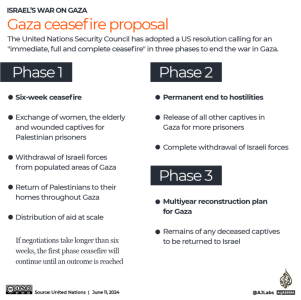Thousands of Palestinians missing amid Gaza’s unrelenting warfare
About 6,400 Palestinians reported as missing to the International Committee of the Red Cross (ICRC) since the outbreak of the war in Gaza on 7 October are yet to have been found, the group has said.
Many are believed to be trapped under debris, buried without identification, or held in Israeli detention while others have been separated from their loved ones, who have been unable to contact them.
Approximately 1,100 new cases of missing people have been registered and remain unsolved since April, the ICRC said.
“Each week we can receive anywhere between 500 and 2,500 calls to our hotlines, and the majority of these are requests for missing family members,” said Sarah Davies, an ICRC spokesperson. “The level of requests fluctuates, sometimes depending on the situation in areas of Gaza – if there are hostilities close to large numbers of people, or evacuation instructions issued, our hotline operators receive more calls with tracing requests in the hours and days that follow.
“Unfortunately, in such chaotic situations, people can be separated easily. People are panicked, sometimes it is dark and difficult to see, if there are explosions nearby people flee and lose one another.”
Davies said that when people were injured and taken to hospital in an ambulance, their family members don’t always know which one they are at. “People can lose their phones, connections can be disrupted, sim cards are changed. There are untold reasons people get separated in a war zone.”
The persistent violence has severely disrupted communications, with hospitals coming under attack, complicating efforts for medical personnel to document casualties and identify the deceased. The unrelenting warfare, coupled with movement restrictions and communication breakdowns, has created significant challenges in monitoring and locating missing individuals. Moreover, access for forensic and human rights experts has been restricted, preventing the identification of victims.
In a recent report, Save the Children said: “Even if they had the equipment, the intensity of Israeli airstrikes and hostilities between the parties – as well as unexploded bombs and missiles in the debris – means it’s too dangerous for families, first responders, and humanitarian workers to search through the rubble.”
Since 7 October, the ICRC has reported more than 8,700 missing Palestinians in Gaza and has engaged with 7,429 Palestinian families to gather information. About 2,300 cases have been resolved, meaning families have found their relatives, either alive or dead.
Muhammad Naji, a resident of al-Falluja in the north of Gaza, said emergency response teams managed to rescue eight people from the rubble after a recent attack, but that 17 others were still buried beneath the debris, and that some of his cousins were missing.
“We don’t know anything about them,” Naji said. “The whole building collapsed on their heads. Are they dead? Are they alive? No one can tell us anything … If my cousins are dead we want to bury them. We can’t think or comprehend.
“I am not the only one who has missing family members. Many people here have the same problem.”
Davies said: “We know from our work in conflict zones all around the world that the most excruciating pain people experience is being separated from a loved one with no knowledge of where or how they are, or what has happened to them. People are fearful, they are anxious, and many of them feel helpless because there is very little they can do in this situation. It’s heartbreaking to hear the pain of people who are frantically trying to reconnect with their family members or hear some news about their fate and whereabouts.”
Abu Ali Zahir lost 23 family members when the three-storey residential building they lived in was destroyed by an Israeli airstrike. Sixteen bodies were pulled out from the rubble about 60 days after the attack, but another seven have not been found.
“I don’t think any of the seven members of the family still under the rubble are alive, but we live in hope,” he said. “We want to give them a proper burial. The pain that the family went through is unbearable.”
The actual number of missing Palestinians is believed to be considerably higher, in part because not all families are aware they can contact the ICRC but also because in some cases entire families have been killed, meaning there is no one to report them missing.
Gaza’s health ministry says the death toll from the war is more than 38,000, and that this figure doesn’t account for missing individuals – including those trapped under rubble, detained or buried in mass graves. The ministry estimates that as of 6 July about 10,000 people were missing.
Locating the missing is a complex process involving cross-referencing information on their status with data from various conflict parties and other sources, such as hospital patient lists or records of detainees returned to Gaza.
“A challenge in this situation is that the conditions for our search activities in the field – where, for example, teams would go door to door, or shelter to shelter and check or ask about the fate and whereabouts of the missing person – don’t exist right now in Gaza,” Davies said. “People are moving so often; they are living in tents and don’t have fixed addresses.”
Every day, Abu Ali Zahir ventures among the rubble of his destroyed home, holding out for miracle. “I go every day among the rubble and call their names, shouting, hoping that someone will reply,” he said.
SOURCE:
https://www.theguardian.com/world/article/2024/jul/12/palestinians-missing-gaza-warfare-red-cross























